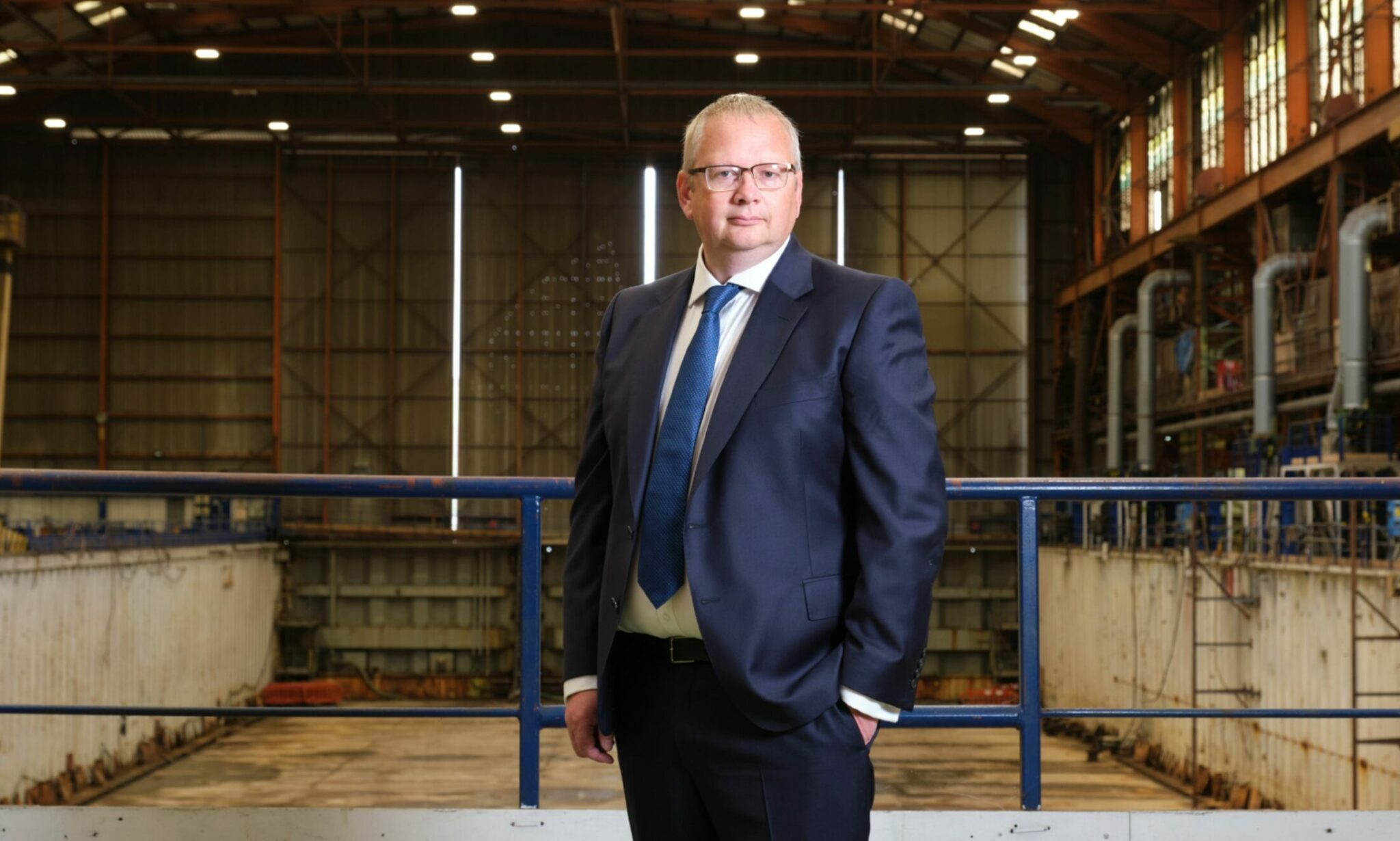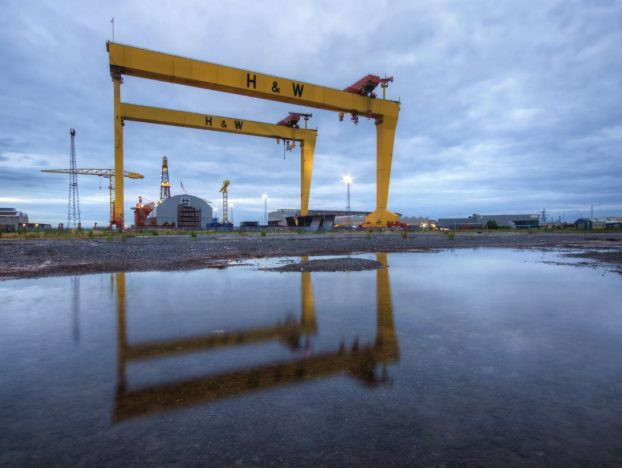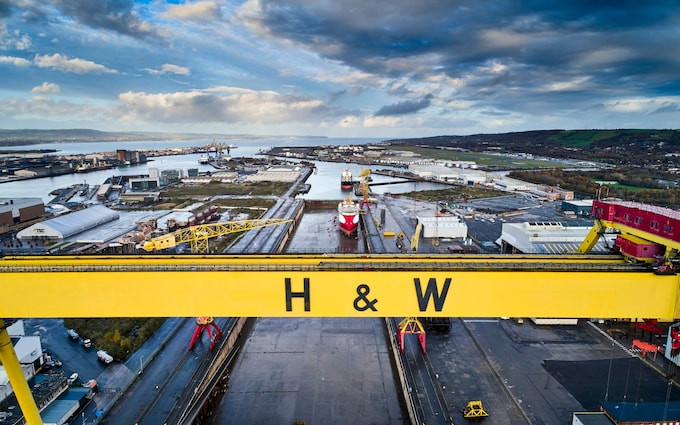Non-core operations are being wound down, the firm said
Shipbuilding company Harland and Wolff has confirmed the business is to be placed into administration for the second time in five years. Insolvency practitioners Teneo are being lined up to act as administrators and some "non-core" staff are being made redundant. However, The company’s board said there was a "credible pathway" for its four shipyards to continue trading under new ownership.
Its main yard is in Belfast, best known for building the Titanic, with other operations at Appledore in England and Methil and Arnish in Scotland. The company said the administration process will be confined to the holding company, Harland & Wolff Group Holdings plc, and the operational companies which run the yards are expected to continue trading. However, shareholders will see the value of their investments in the business entirely wiped out.
What’s gone wrong at Harland & Wolff?
In a statement, the firm said its non-core operations are being wound down. That process had already started with the closure of its Scilly Isles ferry service before sailing had even begun. Other non-core operations include a small business in the US and a marine services business which is to be sold in the hope of preserving 14 jobs.
A small number of non-core staff and others in support roles were told Monday they were losing their jobs. The company warned that "a further reduction in headcount in our core activities may be necessary" depending on the progress of the sales process.
Shipbuilding has been a major part of Belfast's industrial history
On Saturday, the firm’s executive chairman, Russell Downs, said the yards "together or separately have a credible future". "We have strong leadership in all of our yards," he added. "We have a strong business case around the work they are currently doing and the work they expect to do in the future. They have a funding need in the near term but into the future they will be generating cash."
Rothschild bank is running the sales process and the company said a number of parties had contacted it to express an interest in acquiring some or all of the yards with a first-round bid deadline due shortly. It is understood that Spain’s state-owned shipbuilder Navantia is interested in the Belfast operation. Navantia is the major partner in the Fleet Solid Support (FSS) programme to build three Royal Navy logistics vessels with Harland and Wolff as subcontractor.
Sky News has reported that Babcock International, the UK defence contractor, is also a potential bidder for the Belfast business. Mr Downs told the BBC he hoped to be able to conclude a deal or deals by the end of October.
A photograph circa 1912 of the Titanic ship
The company has also given more details of an investigation into the alleged ‘misapplication’ of funds under previous management. Accountants PwC and law firm Simmons and Simmons have been appointed to conduct the investigation. It said Mr Downs took the step in response to concerns raised by customers over "the alleged misapplication of remittances in excess of £25m and certain other lower value matters, such as the disbursement of funds for little or no corporate benefit". The company’s former chief executive, John Woods, told the Financial Times that the allegation of misapplication of funds was “ridiculous”.
Mr Downs says this is "extremely difficult news for the company's staff directly affected"
GMB Union national officer Matt Roberts has said that "workers, their families and whole communities now face their lives being thrown into chaos due to chronic failures in industrial strategy and corporate mismanagement". Mr Roberts said the four Harland & Wolff yards are "needed for our future sovereign capabilities in sectors like renewables and shipbuilding". “The government must now act to ensure no private company is allowed to cherry pick what parts are retained, in terms of which yards or contracts they wish to save,” he said.
Speaking on Monday, Mr Downs said it is "important to recognise that this is extremely difficult news for the company's staff directly affected and will impact many others within group". "We will work to support our staff through this transition. Unfortunately, extremely difficult decisions have had to be taken to preserve the future of our four yards," he continued. "This will clearly be very unwelcome news for shareholders who have shown significant commitment to the business over the last five years."
Harland and Wolff saved from closure
The future of the shipyards had been in doubt for months as government officials raised concerns that a £200m loan guarantee could result in taxpayer losses. The business secretary, Jonathan Reynolds, last month ruled out giving the loan guarantee, which had initially been announced by the previous Conservative government.
One of Harland & Wolff’s existing investors, the US private equity creditor Riverstone Credit Management, injected more money to see it through for another few weeks, but the administration was seen as increasingly likely by people close to the company given its debts and its rapidly declining cash reserves.
When administrators are appointed, it will represent the second time in five years that the owner of the Belfast yards has gone under. The oil services company InfraStrata bought the yards out of administration in 2019, before adopting the historic Harland & Wolff name and attempting to reinvent itself as a shipbuilder.
A spokesperson for the Department for Business and Trade said:
"We have been working extensively with all parties to find an outcome for Harland & Wolff that delivers shipbuilding and manufacturing across the UK and protects jobs. We are clear that following a thorough review of the company’s financial situation, at present the market is best placed to address these challenges, and providing government funding would have meant a significant risk of losing taxpayer money. We know this will be a concerning time for workers, and we strongly encourage all parties to engage with the trade unions before making any further decisions."
The administration of Harland & Wolff marks a significant blow to UK shipbuilding ambitions, particularly in Belfast. The company's iconic legacy and its role in the city's industrial history make this a particularly concerning development. While the future of the shipyards remains uncertain, it is clear that the government will need to play a vital role in ensuring a sustainable future for this critical industry.



















